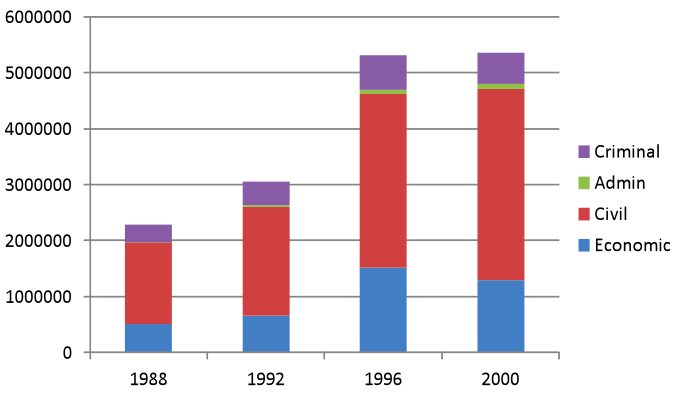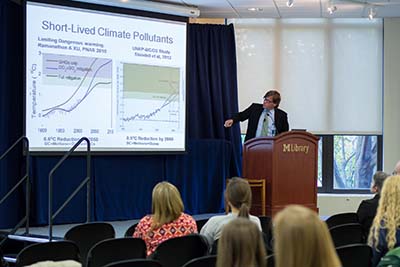How do political connections shape the use of courts?
Post developed by Katie Brown in coordination with Yuen Yuen Ang.
The fairness of China’s court system made the news this week. Apple supplier Knowles, which makes microphones and hearing-aid pieces for iPhones, asserted it was blocked from testifying in a trial with a rival of Apple. How can we understand this?
Court cases are on the rise in China, with the number of commercial cases growing steadily, second only to civil disputes. The expansion of courts should mean the rise of the rule of law and a more level playing field for firms, right? Not exactly.
Center for Political Studies (CPS) faculty associate, assistant professor of political science, and Center for Chinese Studies faculty associate Yuen Yuen Ang studies this trend. In a recent article, forthcoming in The Journal of Politics, Ang and Nan Jia find that politically connected firms are actually more likely to use courts than non-connected firms. These connected firms are congressional delegates and/or former party-state officials.
Political connections among private firms in China shape not only their access to resources and profitability, but even their willingness to use courts for dispute resolution.
Number of Court Cases by Type over Time
However, the fact that politically connected firms use courts more may not signal the subversion of law. Besides having access to officeholders (“know who”), politically connected firms also tend to have more knowledge about and confidence in navigating the legal system (“know how”). So do politically connected firms use courts more because of “know who” or “know how?”
By analyzing survey data of over 3,900 private firms in China, Ang and Jia finds that “know who” dominates “know how” in inducing politically connected firms to use courts more.
Findings from the study challenge the assumption in Western-based theories that as law and courts expand, connections will diminish in influence. As the authors write:
“The substitutive view of formal laws and informal networks is premised on the substantial passage of time and absence of a strong authoritarian state in legal development. The edifices of law can be quickly built, but one cannot assume that norms and practices of impartiality will follow, particularly when courts are subordinated to politics by design. In institutional landscapes such as those of China, we can expect a fusion of legality with politics and the informal with the formal.”



